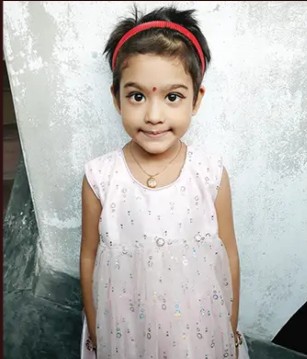At an age when parents should be arguing over which toys to buy or which cartoons their child should watch, Dipak and Protima Gope now spend each day trying to accept the unimaginable—the death of their only daughter, Riya.
Six-year-old Riya Gope was just doing what children do—playing on the rooftop of her family’s home in Narayanganj’s Noyamati area on July 19, 2024. It was the first day of a nationwide internet blackout and unrest had already begun to stir in the streets.
What happened next shattered her family’s world forever.
As clashes between protesters from the Anti-Discrimination Student Movement and law enforcers broke out nearby, Riya’s father rushed to the roof, sensing danger. He scooped his daughter into his arms to carry her inside.
Then, in a blink—a bullet. A stray shot tore through the air, hitting Riya in the back of the head as her father held her close.
Blood soaked his shirt as he screamed for help. Dipak rushed her to the nearest hospital, then to Dhaka Medical College Hospital, where doctors operated. For five agonizing days, her parents waited and prayed.
The pain was beyond words. Protima, her mother, was inconsolable. The neighborhood fell silent. The laughter that once echoed from the Gope home vanished. Riya had been the youngest victim of the July uprising—just a little girl playing in what should have been the safest place: her own home.
At the morgue, Dipak clutched his daughter’s tiny body wrapped in a blanket. Grief poured from him like a broken dam:
“I had everything. What will happen now? Who will I seek justice from? She was a treasure born after a long wait. After many years of marriage, I had this child. And now, her body is on my shoulders. The child who used to light up our home is no more.”
Riya had been their only child.
For months, her death was just another name in headlines—no case, no investigation, just silence. It wasn’t until 11 months later, in July 2025, that a murder case was officially filed by the police, not the family. They were too shattered to fight.
The case named 200 unidentified people. No names. No arrests. No justice.
Riya’s toys remain untouched in a corner of her room. Her drawings still hang on the wall. Her parents now live with an ache that never quiets—the ache of a life stolen too soon, and a justice system too slow to care.


